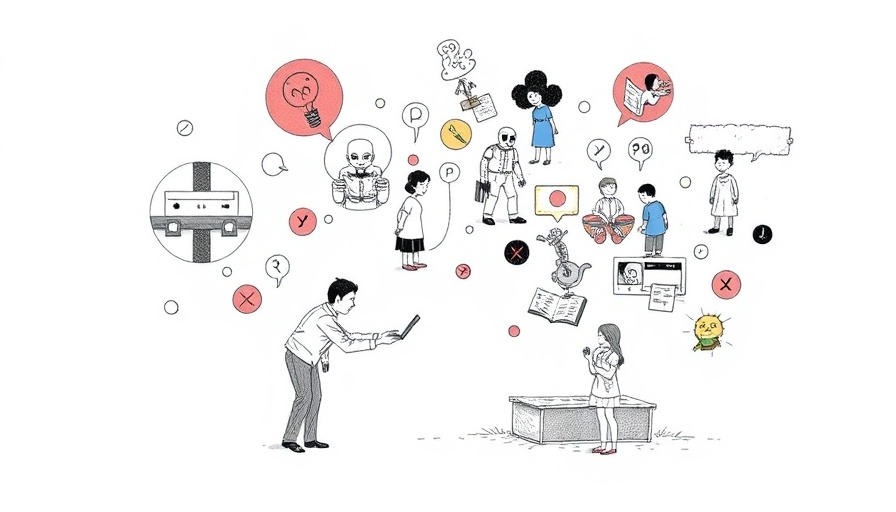
The Human Element in Storytelling
Stories are a fundamental part of human culture, serving as vehicles for expression, connection, and understanding. However, with the rise of AI-generated content, a critical question emerges: can machines truly capture the essence of human storytelling? While AI, such as OpenAI's tools, can craft narratives that mimic human writing, they lack the unique perspectives and lived experiences that breathe life into stories. This raises a vital point highlighted by Jeanette Winterson, who amidst praise for AI's creative potential, fails to acknowledge the potential consequences for humanity's creative ecosystem.
The Challenge of AI in Creative Spaces
Increasing reliance on AI for creative tasks, from editing to graphic design, prompts fears about job displacement in literature and the arts. The advent of machines taking roles typically held by human writers raises concerns that AI may dilute the richness of human creativity. Henry Futcher's criticism suggests that if more platforms favor AI-generated content, there will be fewer opportunities for emerging human writers to showcase their talent and share genuine human experiences that resonate with audiences.
The Authentic vs. the Algorithm
Graham Mort, an authority in creative writing, offers an alternative perspective that highlights the capacity of AI to reflect and challenge human experience. Literature inherently involves synthesizing past experiences, something that even AI can emulate. He poses thought-provoking questions about identity and perspective, inviting us to consider whether AI could enhance our understanding of ourselves and each other rather than replace it.
AI as an Assistive Technology
In practical applications, some educators are advocating for the use of AI as a supportive tool for writers rather than a replacement. For example, tools like GPTZero allow students to check their work against AI detection systems, prompting them to think critically about the originality of their writing. This intersection of education and AI reinforces the idea that technology should assist creativity, not overshadow it.
The Future of Creative Media
As we move forward, the creative industry faces a crossroads where cultural value and economic reality converge. Embracing AI responsibly could enrich storytelling if used wisely while preserving the inherent value of the human narrative. It is essential to create spaces where human stories continue to flourish, ensuring that artistic expressions remain diverse and grounded in authentic experiences.
Questions for Reflection
Crafting and consuming stories is a uniquely human endeavor. As AI plays an increasing role in this landscape, it leaves us with pressing questions: What is the role of human creativity in a world leaning towards automation? Can AI-generated stories foster a deeper understanding, or will they perpetuate a cycle of sameness? Engaging with these inquiries is vital for anyone passionate about literature and technology's future.
The dialogue about the balance between human creativity and AI’s growing influence in the arts is crucial. It's essential to reconsider how we define authorship and creativity in an age where machines can generate text at alarming rates. The conversation must continue, aiming for a future where technology amplifies, not diminishes, the human voice in storytelling.
 Add Row
Add Row  Add
Add 




 Add Row
Add Row  Add
Add 

Write A Comment